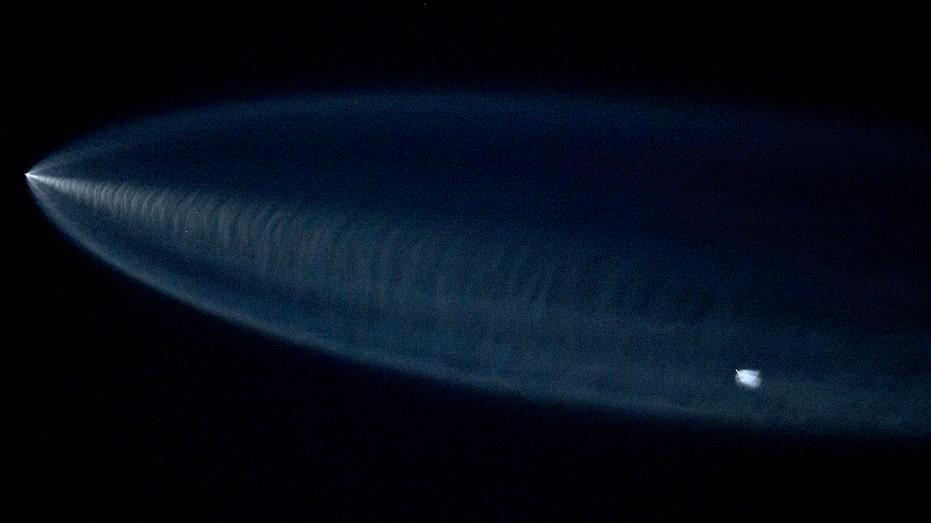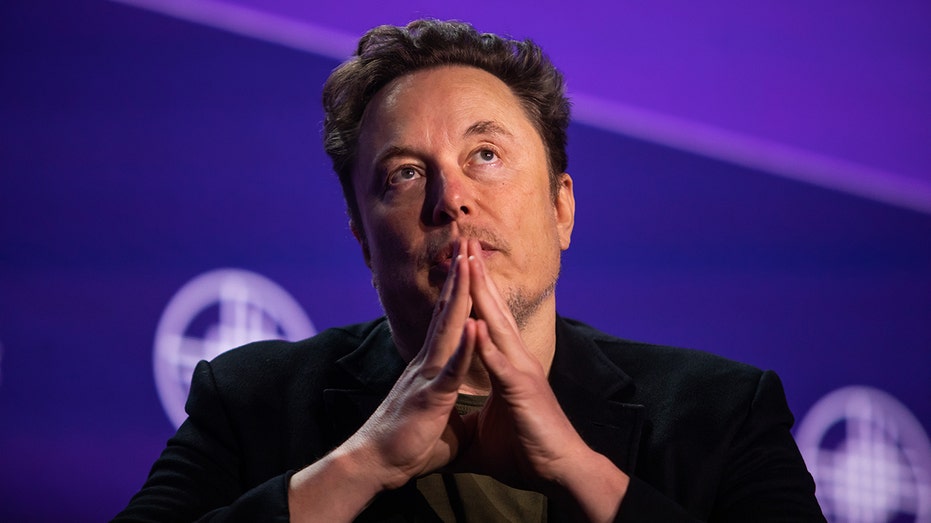SpaceX launched a Falcon 9 rocket carrying Starlink broadband satellites into orbit from California on Tuesday, after another mission in Florida was scrubbed.
Elon Musk’s private spaceflight company successfully deployed 20 Starlink satellites into low earth orbit after launching from Vandenberg Space Force Base at 11:40 p.m., it said.
“On orbit, the 13 with Direct to Cell capabilities will connect over laser backhaul to the existing constellation, using an advanced modem on board that acts as a cellphone tower in space,” SpaceX posted on X.
The Falcon 9 first stage touched down on the SpaceX droneship Of Course I Still Love You about 8.5 minutes after launch. This was the fifth flight for the first stage booster, which previously launched USSF-62 and now four Starlink missions, a mission description on SpaceX’s website said.
SPACEX’S MASSIVE SUPER HEAVY-STARSHIP RETURNS TO EARTH WITHOUT EXPLODING AFTER FIRST FULL TEST FLIGHT
The California launch happened in the evening after a planned mission for the satellite company SES in Florida was delayed.
The Florida mission was rescheduled for Wednesday and is planned for 5:25 p.m. ET at Space Launch Complex 40 (SLC-40) at Cape Canaveral Space Force Station, SpaceX said.
The mission will be the ninth flight of SpaceX’s first-stage booster, which previously launched Ax-2, Euclid, Ax-3, CRS-30 and four Starlink missions. SpaceX will livestream the launch on X, starting about 15 minutes before liftoff.
After stage separation, the first stage will land on the Just Read the Instructions droneship, which will be stationed in the Atlantic Ocean, SpaceX said.
CARNIVAL CRUISES FEATURE SPACEX STARLINK INTERNET ON ENTIRE FLEET

The 20 satellites put into low earth orbit on Tuesday join more than 6,000 in Starlink’s constellation, which provides internet access to over 75 countries. As of May, Starlink boasts more than 3 million subscribers to its high-speed internet services.
With Tuesday’s launch, SpaceX has now completed 356 launches, 319 landings and 290 relights — a historic achievement as the first private company to develop a reusable two-stage rocket.
ELON MUSK’S EMPIRE: HOW COMPANIES LIKE TESLA AND SPACEX RAKED IN BILLIONS FOR THE ENTREPRENEUR

The Defense Department has taken note of Musk’s success, selecting SpaceX along with Jeff Bezos’ Blue Origin and Boeing-Lockheed joint venture United Launch Alliance (ULA) to compete for national security space missions in a $5.6 billion award program.
The Pentagon program seeks rockets that will be ready to fly missions to space by December, Reuters reported.
The three companies are the first to be selected under the Pentagon’s lucrative National Security Space Launch Phase 3 procurement program, a multibillion-dollar competition among U.S. rocket companies vying to launch some of the country’s most sensitive military and intelligence satellites into space for roughly the next decade.
SpaceX’s partially reusable Falcon 9 rocket has dominated the launch industry while the company test launches its next-generation Starship rocket, a massive, fully reusable launch system that Musk sees as crucial to flying humans into space and launching large batches of satellites into orbit.
Reuters contributed to this report.
Read the full article here











